Archaeology
-
 Genetics
GeneticsLong before Columbus, seals brought tuberculosis to South America
Evidence from the skeletons of ancient Peruvians shows that seals may have brought tuberculosis across an ocean from Africa.
-
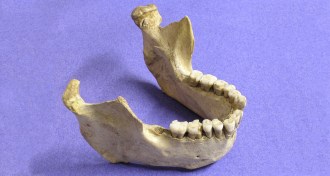 Anthropology
AnthropologyEarlier dates for Neandertal extinction cause a fuss
Revised dates suggest Neandertals coexisted with modern humans for several thousand years in Europe before disappearing 40,000 years ago.
By Bruce Bower -
 Anthropology
AnthropologyOrigins of Egyptian mummy making may predate pyramids
Preservative mixture for mummy wrapping found on linens that covered the dead as early as 6,300 years ago.
By Bruce Bower -
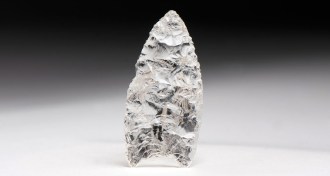 Anthropology
AnthropologyClovis people may have hunted elephant-like prey, not just mammoths
The ancient American Clovis culture started out hunting elephant-like animals well south of New World entry points, finds in Mexico suggest.
By Bruce Bower -
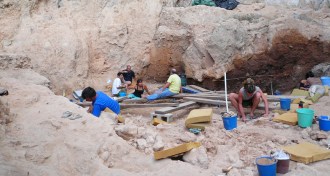 Anthropology
AnthropologyNeanderthals reveal their diet with oldest excrement
50,000-year-old fossil poop hints at Neanderthals’ omnivorous, but meat-heavy, diet.
-
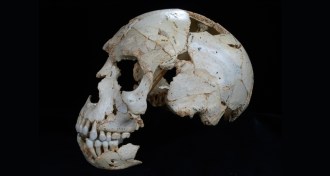 Humans
HumansSkulls reveal Neandertal’s hodge-podge genealogy
A new analysis of ancient hominid skulls reveals a patchy anatomical start of the Neandertal lineage.
-
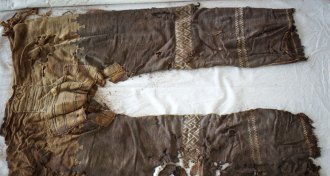 Archaeology
ArchaeologyFirst pants worn by horse riders 3,000 years ago
A new study indicates horse-riding Asians wove and wore wool trousers by around 3,000 years ago.
By Bruce Bower -
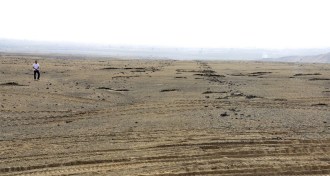 Anthropology
AnthropologyPeruvian glyphs pointed way to ancient celebrations
At least 2,300 years ago, Paracas people in the Chincha Valley of Peru were engineering their landscape to keep time and host ritual and social activities.
-
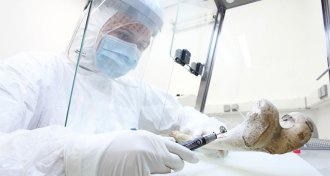 Archaeology
ArchaeologyWritten in bone
Researchers are reconstructing the migrations that carried agriculture into Europe by analyzing DNA from the skeletons of early farmers and the people they displaced.
-
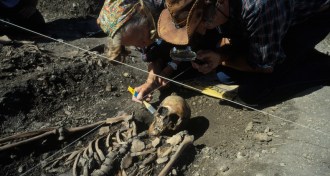 Genetics
GeneticsFarmers assimilated foragers as they spread agriculture
While some European hunter-gatherers remained separate, others mated with the early farmers that introduced agriculture to the continent.
-
 Anthropology
AnthropologyBronze Age herders spread farming around Asia
Ancient seeds indicate that Central Asian animal raisers had an unappreciated impact on early agriculture.
By Bruce Bower -
 Archaeology
ArchaeologyBlack Death grave reveals secrets of 14th century life
Skeletons dug up by London Crossrail excavations are giving scientists a more detailed look at the bubonic plague, or Black Death, of the 1300s.